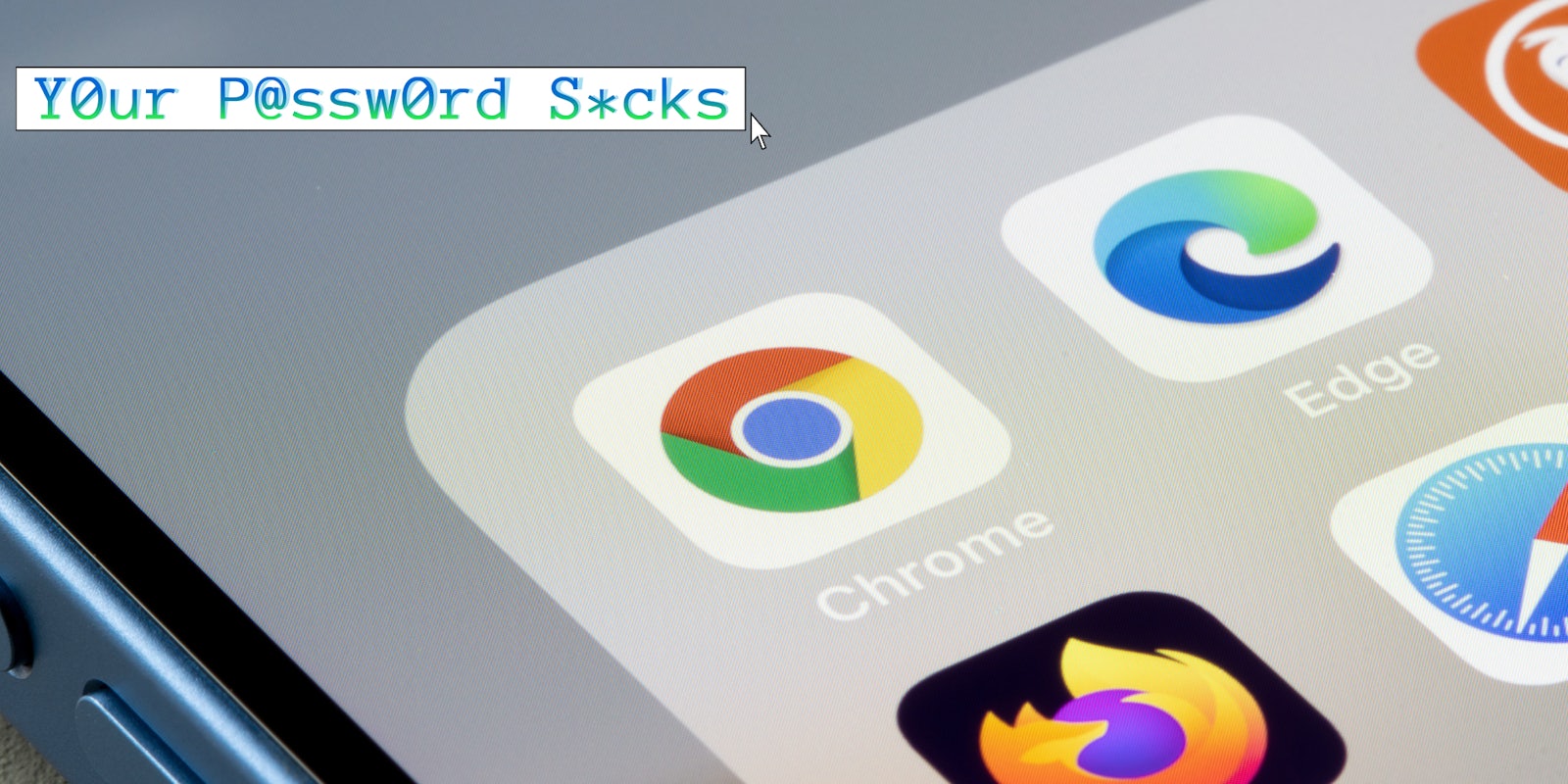Y0ur P@ssw0rd S*cks is a bi-weekly column that answers the most pressing internet security questions web_crawlr readers have to make sure they can navigate the ‘net safely. If you want to get this column a day before we publish it, subscribe to web_crawlr, where you’ll get the daily scoop of internet culture delivered straight to your inbox.
Today, web_crawlr reader Lisa R. asks: “What browser is the safest?”
With an ever-growing number of web browsers to surf the internet with, many may question which option is the best or safest. But the answer is a bit more complex.
When it comes to internet safety and security, there is rarely a one size fits all answer. Different people are going to require different safety measures depending on what exactly they are trying to stay safe from.
Are you a human rights worker in a dangerous country? Are you concerned about scammers and con artists? Or do you simply want to be tracked less while browsing the web?
Instead of trying to pick the “best” or “safest” web browser, I will provide details on three that I believe all serve a purpose.
In terms of usability, Google’s Chrome is very popular due to its wide-array of features. But what about safety? Google does a great job with browser security, such as warning users of suspicious websites. The downside, however, is that Google is notorious for collecting vast amounts of information on its users.
While there are some browser extensions you can add to Chrome to make it better, such as the ad-blocker uBlock Origin, you will be tracked quite heavily online. So if privacy is a concern, you may want to think twice about using Chrome.
In terms of privacy for everyday browsing, Firefox is a good choice. Firefox comes equipped with numerous privacy features out-of-the-box, such as tracking protection and “containers” that can keep sites like Facebook from following you across the web. Security with Firefox is generally good too.
The third browser I’ll mention is the Tor Browser, the gold standard for online anonymity. The Tor Browser is a modified version of Firefox designed to make you much harder to distinguish online. Unlike VPNs, which route your traffic through one server to hide your IP address and location, the Tor Browser routes your traffic through multiple servers on what’s known as the tor network.
This can allow users to surf the web anonymously. Remember though, if you were to log into a service such as Twitter with the Tor Browser, you would no longer have anonymity. But, if your primary interest was to hide your true location from Twitter, then using the Tor Browser would be perfect.
The downsides to the Tor Browser are, depending on what level you set the security too, is that some websites may not function properly as the browser works to block as much potentially unsafe content as possible, whether trackers or otherwise.
It also isn’t a bad idea to use multiple browsers, which will keep you from having all of your eggs in one basket. Need a browser that works well with certain video players? Use Chrome. Need a browser for everyday internet use? Use Firefox. Need a browser to make anonymous searches online or to speak anonymously? Tor Browser is your best bet.
Again, online security and safety are vast topics. But making minor changes when you can, such as using a better browser or using a VPN, can make a difference over time.
Now you can watch Your Password Sucks as a video series! Subscribe to our channel and watch for new episodes weekly.


